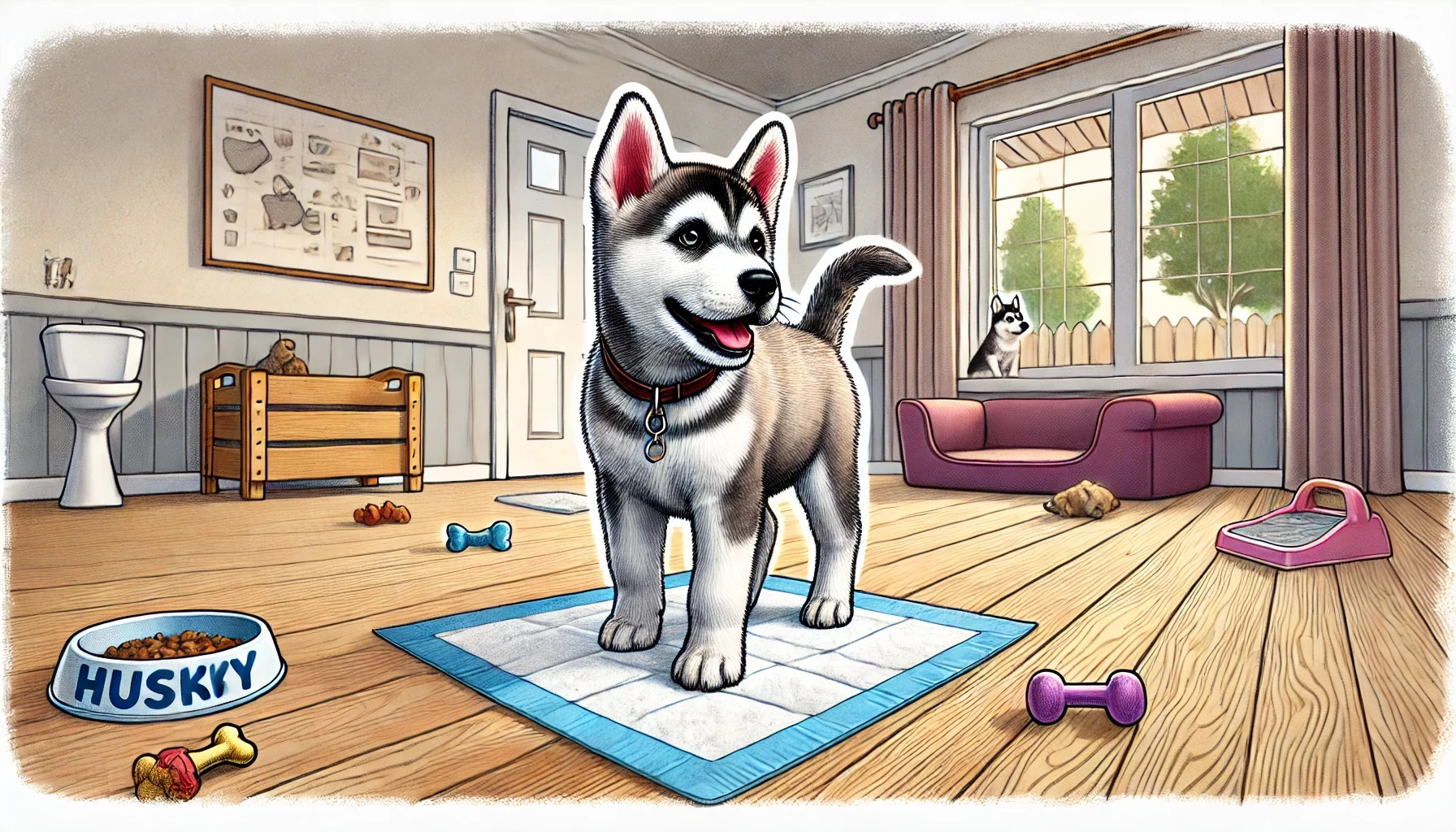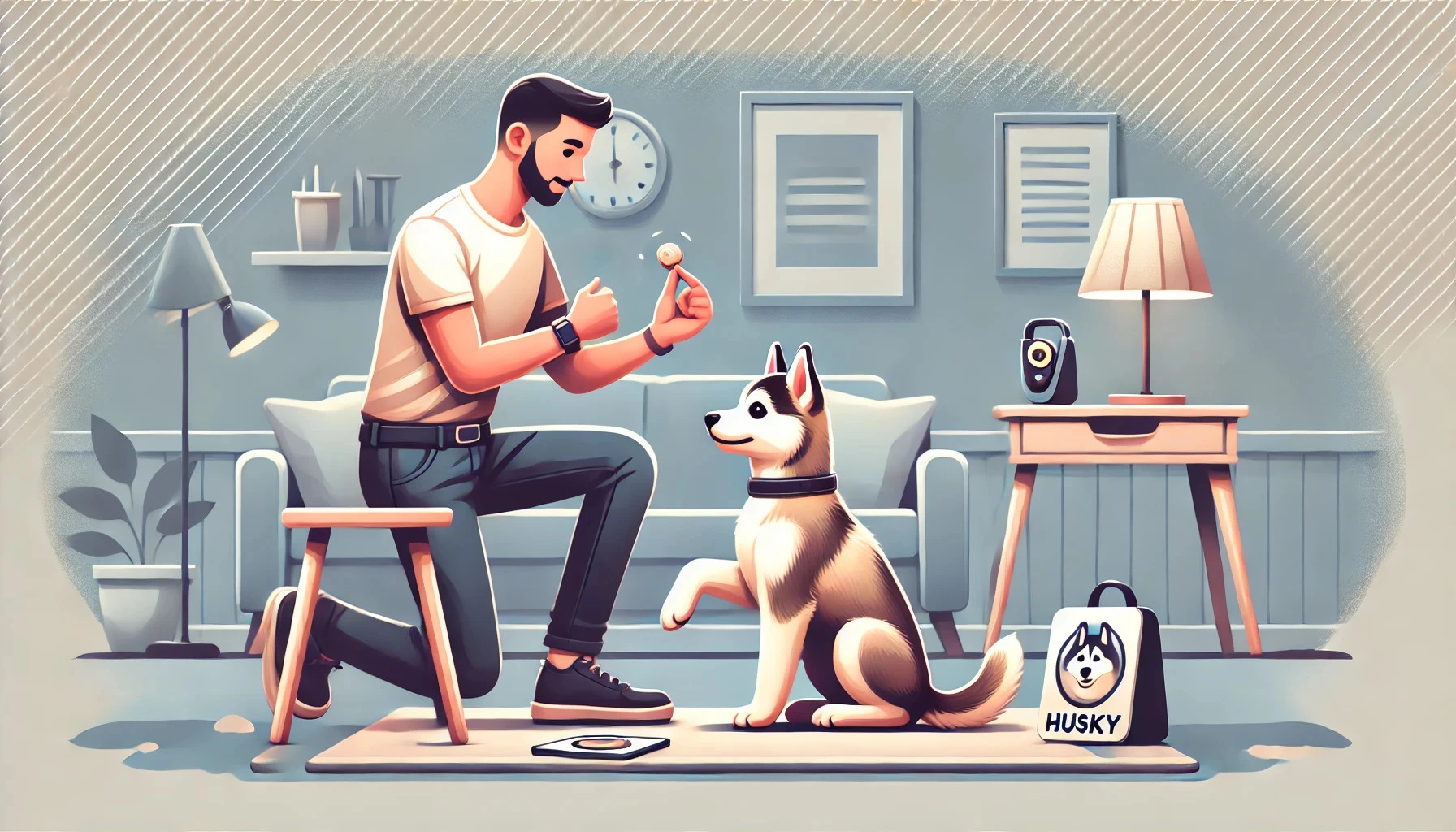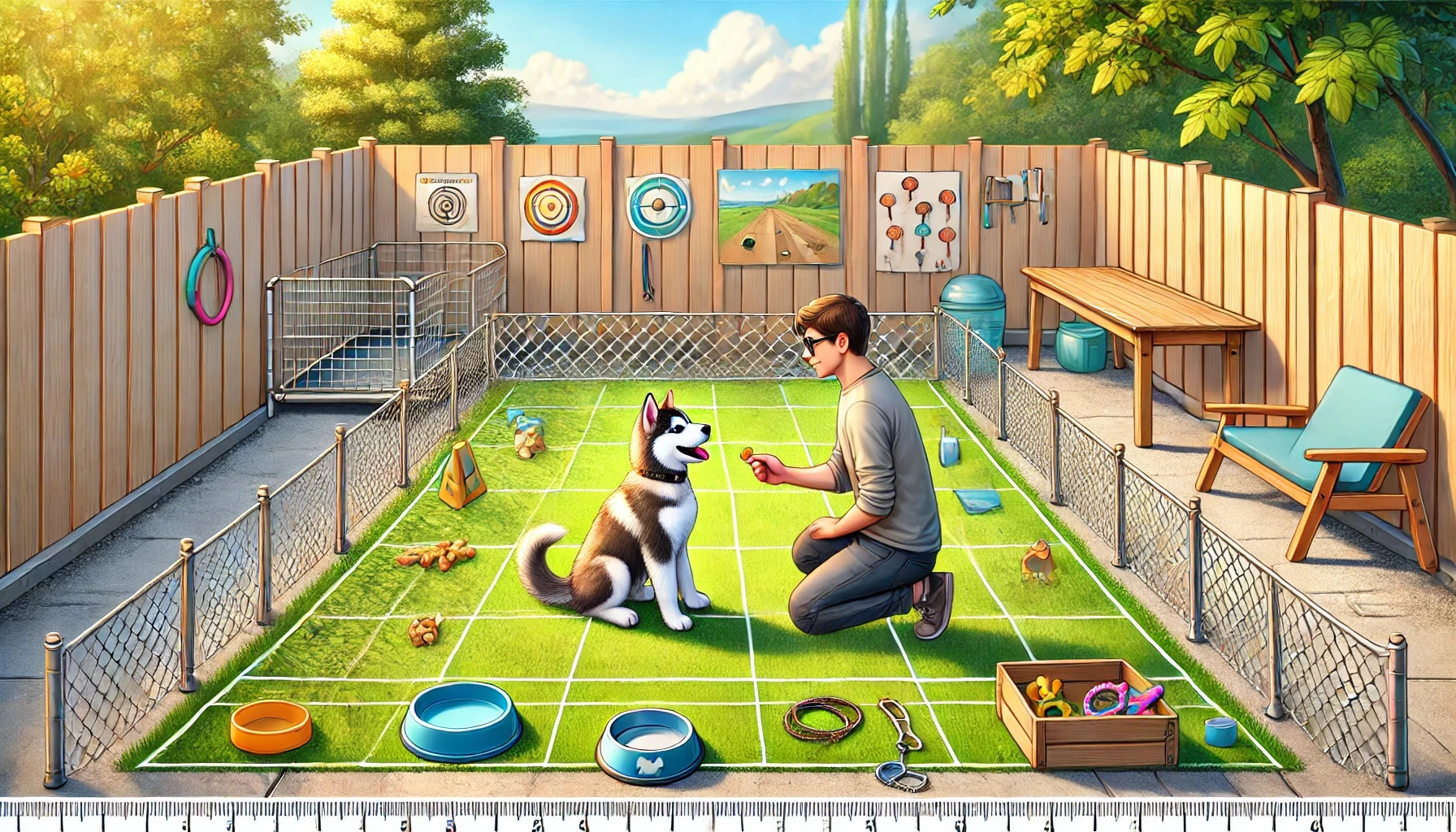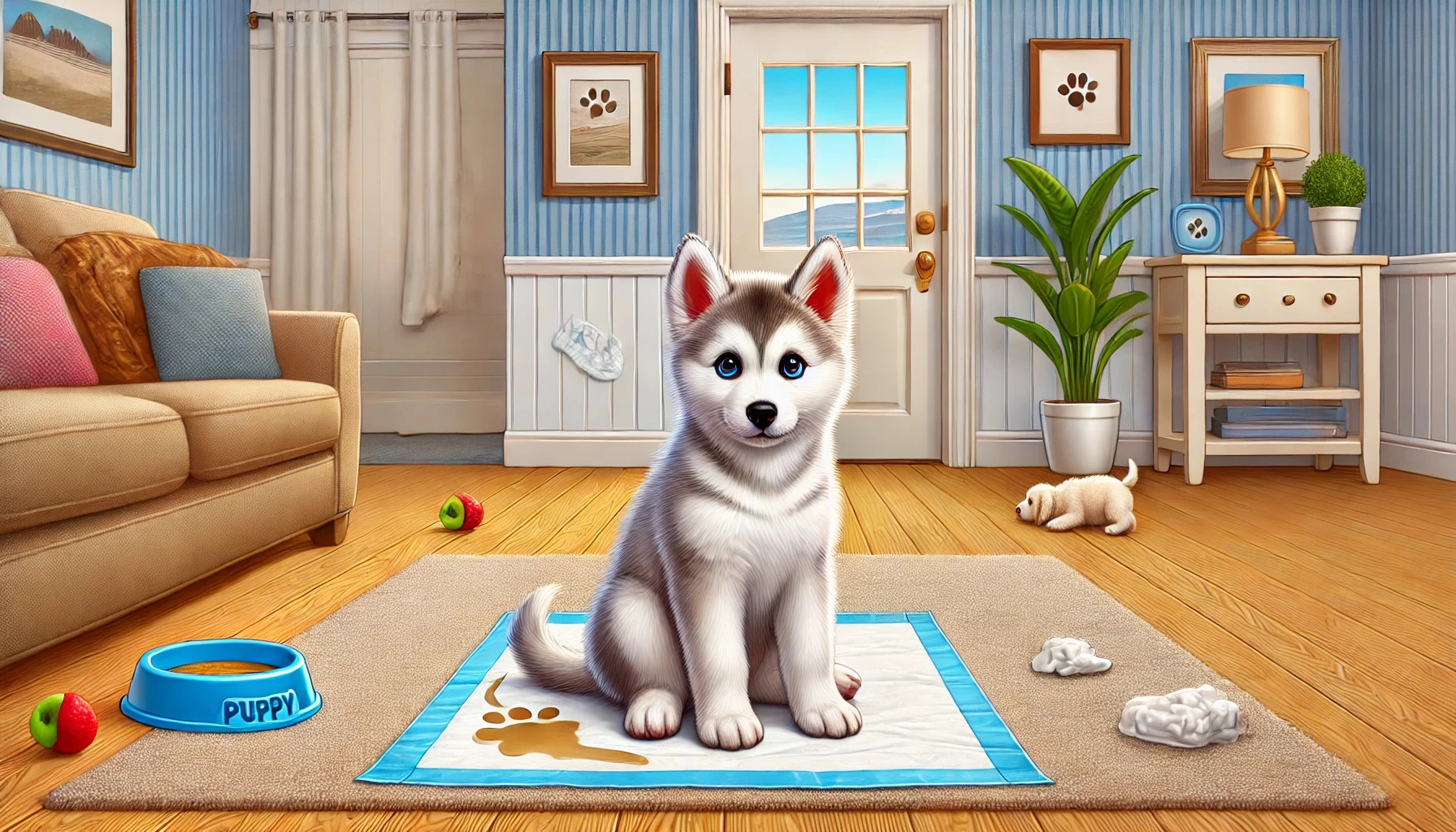On this page
Is It Common for a Husky Puppy to Struggle With Potty Training?
Yes, it’s common for a 3-month-old Husky to face challenges with potty training. Huskies are intelligent but independent, which can sometimes make training more difficult. At this age, they are still learning bladder control and adjusting to routines. Compared to breeds like Labradors, Huskies may take slightly longer to grasp training due to their stubborn streak.
Huskies also have high energy levels, which can lead to distractions during training sessions. Their dietary needs are evolving, and what they eat can impact their potty habits. Understanding these factors is crucial for successful training.
This article explores why Huskies struggle with potty training and provides actionable tips to help owners overcome these challenges.
Struggling with potty training? Get expert help with Dosty App training tips.
Does a Husky’s personality affect potty training?
Yes, their independent nature and high energy levels often complicate the process.
Key Factors That Contribute to Challenges:
Independence: Huskies like to make their own decisions, which may cause resistance to structured training.
High Energy Levels: They get easily distracted, especially during outdoor potty breaks.
Bladder Control: At 3 months, their bladder is still developing, leading to frequent accidents.
Inconsistent Routines: Huskies thrive on structure; a lack of consistency can confuse them.
Dr. Amanda White notes, “Huskies require patience and consistency to overcome their natural stubbornness during potty training.”

Can a Husky puppy’s diet influence potty training success?
Yes, a poor diet can lead to irregular bowel movements, making training harder for your Husky puppy.
Dietary Tips for Better Potty Training:
Feed on a Schedule: Offer meals at the same times daily to regulate bowel movements.
Avoid Rich Foods: Foods high in fat or filler ingredients can cause diarrhea or loose stools.
Include High-Quality Proteins: Supports digestion and reduces accidents.
Hydration Balance: Ensure your puppy drinks enough water but avoid excessive intake before bedtime.
Dr. Kevin Ross advises, “What your puppy eats plays a significant role in their ability to stick to a potty schedule.”
Discover grooming and recommendation tips for Husky!
Are certain training methods less effective for Huskies?
Yes, punishment or inconsistent techniques often backfire with Huskies.
Effective Potty Training Strategies:
Positive Reinforcement: Reward successes with treats or praise.
Supervision: Keep your puppy in sight to catch accidents early.
Frequent Breaks: Take your puppy outside every 1–2 hours.
Use a Command: Teach a specific phrase like “Go potty” to associate with the action.
Dr. Emily Carter explains, “Huskies respond best to positive reinforcement and patience during training.”
For more tips visit our page Dosty.co.

Could medical conditions make potty training harder for your Husky?
Yes, urinary tract infections (UTIs) or gastrointestinal issues can lead to accidents in your Husky.
Signs of Health-Related Issues:
Frequent urination or small amounts of urine.
Straining or discomfort during elimination.
Loose stools or diarrhea.
Increased thirst and urination.
Dr. Sarah Bennett warns, “If your Husky has frequent accidents despite training, consult a vet to rule out underlying health issues.”
Does the training environment matter for a Husky?
Yes, a calm, consistent space makes training easier for your Husky.
Tips for Creating an Ideal Training Space:
Choose a Designated Spot: Use the same area outdoors for potty breaks.
Minimize Distractions: Avoid noisy or crowded locations.
Crate Training: Helps reinforce bladder control and limits accidents indoors.
Clean Accidents Thoroughly: Use enzymatic cleaners to remove odors that may attract repeat accidents.
Dr. Laura White recommends, “Consistency in the environment is key for teaching your Husky where and when to go.”

Does potty training take longer with Huskies?
Yes, their independent nature means it can take a few weeks longer than other breeds.
Tips for Staying Patient:
Celebrate Small Wins: Recognize and reward every success.
Avoid Punishment: Focus on redirecting mistakes rather than scolding.
Track Progress: Keep a journal to identify patterns in your puppy’s habits.
Seek Professional Help: Enlist a trainer if challenges persist.
Dr. James Lee states, “Potty training a Husky requires patience, consistency, and understanding of the breed’s unique needs.”
Conclusion: Potty Training Success With a 3-Month-Old Husky
Potty training a 3-month-old Husky is challenging due to their independent nature, high energy, and developing bladder control. By maintaining a consistent routine, using positive reinforcement, and addressing any dietary or health concerns, you can help your Husky succeed.
Simplify potty training with Dosty App expert tools and resources.

